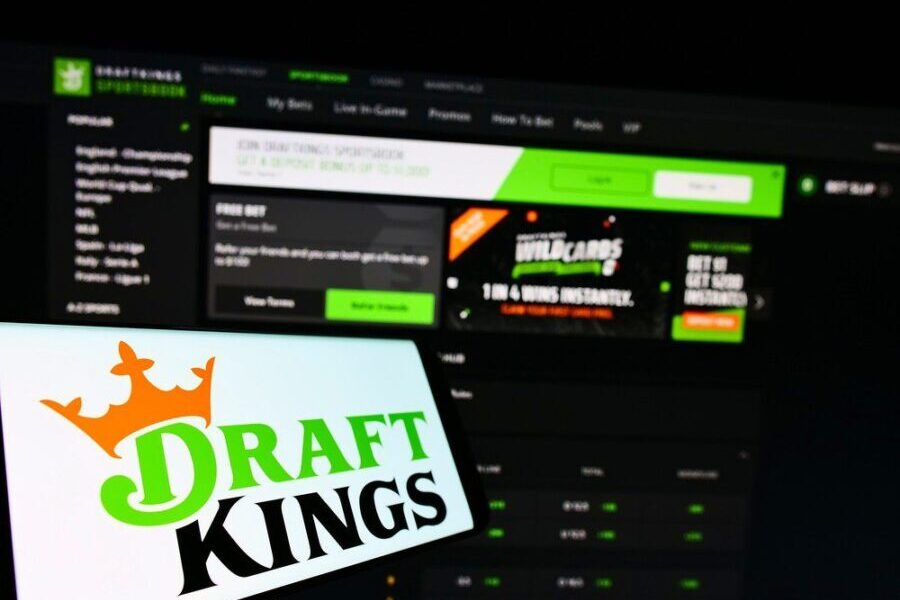What does the future hold for prediction markets after big players break from AGA?

Jill Dorson, InGame managing editor, broke one of the biggest stories of the year in the gaming industry last week after she received an anonymous tip that FanDuel and DraftKings were no longer in sync with the American Gaming Association.
“Both companies previously announced their intent to begin offering sports event contracts via prediction markets, which are regulated by the federal Commodity Futures Trading Commission rather than by state regulators,” Dorson wrote 17 November in an article republished in CDC Gaming.
Sometime after the general PPC (Public Policy Committee) meeting Monday, and before an evening cocktail hour, the AGA’s executive committee met, and the end result was a clear split between the AGA, DraftKings, and FanDuel about prediction markets.”
The news came as no surprise to Dorson.
“I think it’s been clear for a while that within the industry, alignments have been changing, and that different kinds of companies and organizations, including regulators, have different interests as the landscape is changing,” Dorson said during an interview with COMPLETE iGAMING.
The split between DraftKings and FanDuel with the AGA has caused ripples throughout the gaming industry. Fanatics on 24 November confirmed that it was launching Fanatics Predicts, its prediction markets foray through a partnership with cryptocurrency exchange Crypto.com., although the company remains aligned with the AGA. In September, daily fantasy sports operator Underdog joined with Crypto.com to offer prediction markets in 16 states on its platform.
Jonathan Michaels, founder and principal of Michael Strategies, said the seeds of the disconnect have been percolating for years. When the Professional and Amateur Sports Protection Act was repealed in 2018, it set in motion laws that allow legal sports betting in 39 states, Washington, D.C., and Puerto Rico.
Part of the appeal of prediction markets is the idea they will fill the void in states – especially California and Texas – that have yet to legalize sports betting.
“As the states’ online sports betting grew dramatically between 2018 and 2024, you saw how interest in betting on sports drove market legalization,” Michaels said. “But over the past two legislative cycles in 2024 and 2025, no state legislature decided to legalize online sports betting. What we are stuck with is a difficult map to find new markets to open up.”
The entry of DraftKings (DraftKings Predictions) and FanDuel (FanDuel Predicts) into prediction markets might cause other explorations by traditional online sports betting operators. Steve Ruddock, a gambling industry analyst and consultant, and editor-in-chief at Gaming Law Review, thinks online-first companies will follow, albeit with one caveat.
“Companies that have their eyes on being long-term, accepted players in the gambling industry might want to tread carefully, as memories can be long, both on the industry side and the regulatory side,” Ruddock said. “It wouldn’t surprise me to see bad actor and tainted asset clauses return and get wielded against operators who have embraced prediction markets.”
Lawrence Shen, CFA, a managing director for Advantage Partners Consulting, says DraftKings and FanDuel’s gambit is not without risk.
“Yes, they withdrew from states like Nevada, which was never a real meaningful state to them, but what about other large states, like Massachusetts or New Jersey?” Shen said. “Massachusetts just became the sixth state to warn sports betting licensees about involvement in prediction markets. Possible adverse licensing repercussions could include regulators taking action against the company’s license in other states due to involvement in prediction markets. At the worst, this could even be the beginning of the end of their domination in the sports betting market.”
Dorson says it’s hard to predict how successful the new entries will fare.
“I think it’s hard to know how successful they’ll be,” Dorson says, “but we do know that in the U.K., Betfair for Flutter does not represent a large percentage of their revenue. And I think based on what Peter Jackson (CEO with Flutter) and Jason Robins (CEO with DraftKings) have said in their earnings calls that it is not their expectation, either.”
Shen pointed out that one important factor in the shake-up that has mostly been neglected is the effect on consumers.
“In this case, this could be sports and events bettors with a varying level of seriousness,” Shen said. “I think what FanDuel and DraftKings plan to do on a national scale could in general benefit the consumers, in ways of providing nationwide liquidity, easier onboarding, more favorable pricing, and less restriction on winning players. I’m all for operators to make money, but I think the consumers are an important factor in this debate that has been largely overlooked in all discussions.”
Michaels adds DraftKings and FanDuel could be ahead of a trend, especially in states that do not offer legal sports betting. The opportunity may unlock previously untapped markets where sports bettors rely on illegal platforms.
“We know players want legal options,” Michaels said. “But with some of these larger states, there is no timeline for when or if sports betting will be legalized. As a result, I think players who are looking for regulated options will embrace prediction markets. Ultimately, I think licensed operators entering prediction markets will look at opportunities in unregulated markets as the reason for entering that space.”
But, Michaels adds, a sports bettor with legal options isn’t likely to enter prediction markets.
“I don’t really see an online sports bettor who already has their book of choice really switching over to prediction markets,” Michaels said.
Verticals:
Sectors:
Topics:
Dig Deeper
The Backstory
Why the prediction market rift matters now
DraftKings and FanDuel’s break from the American Gaming Association over federally regulated prediction markets did not come out of nowhere. The move caps years of mounting pressure on U.S. operators to find growth beyond a stalled state-by-state sports betting map, while fending off regulatory blowback and tax hikes at home. The immediate catalyst was the companies’ push to offer sports event contracts under the Commodity Futures Trading Commission, rather than state gaming regulators — a pathway that some in the industry fear could erode the consensus model that has governed legal wagering since 2018. CDC Gaming reported the decisive step when the two operators resigned from the AGA, underscoring a fundamental split over jurisdiction, product scope and political strategy.
This conflict lands at a moment when large operators are chasing new product lines to offset softness in certain sports results and maturing markets. DraftKings, fresh off an earnings update that was upbeat on revenue growth but clear about recent “bad quarters” on outcomes, has been signaling flexibility on product mix and distribution, even as it cautions on taxes and black-market competition. The company’s CEO, Jason Robins, told investors that hold volatility and tax pressure are real constraints but not thesis-breakers, a stance detailed in our coverage of DraftKings’ most recent earnings call. Prediction markets fit that pursuit of incremental growth — particularly where traditional legalization is stuck.
A stalled map pushes operators to federal rails
After the Supreme Court opened the door to legal sports betting in 2018, operators sprinted into dozens of states. But the pace has slowed. Over the last two legislative cycles, efforts to add major new mobile markets have either failed or lagged, leaving big population centers like California and Texas out of reach. That is the strategic context for the CFTC-regulated alternative: if statehouses will not move, some operators will seek another regulator entirely.
Mississippi shows how the politics have hardened. A year after a House bill won overwhelming support, Senate leadership has signaled little appetite to try again. Our report on Mississippi’s uncertain 2025 outlook noted the Senate Gaming Committee chair does not plan to file a bill absent a request from the state regulator. The Mississippi Gaming Commission is not pushing one, and the Clarion Ledger has reported similar reticence. With gridlock in several states, the appeal of a nationally consistent product — even if narrower than full sportsbook menus — becomes more obvious to growth-hungry brands.
Internationally, regulators are tightening in other ways that color the U.S. debate. In India, where gambling is a state subject, national authorities have touted large-scale bans and financial blocks against offshore operators. Lawmakers recently staged a pointed exchange over jurisdiction and responsibility for online gambling harms. Our story on the Indian Parliament’s debate highlights how federalism, consumer protection and enforcement tools collide — a dynamic that U.S. stakeholders recognize in their own federal-versus-state tug-of-war, albeit under different law.
Regulators, risk and the AGA divide
The AGA’s position reflects concerns from land-based and state-licensed operators that prediction markets, if expanded to look like sportsbooks under a different regulator, could undercut state authority and complicate enforcement. State regulators have already warned licensees about entanglement with federally cleared prediction products. That risk calculus is not theoretical for large, multi-state operators that depend on licenses in places like New York, New Jersey and Massachusetts. The AGA fracture crystallizes a policy question: do prediction markets become a parallel lane for sports-style wagering, or remain a distinct, more limited financial product overseen by markets regulators?
DraftKings’ recent commentary hints at the tightrope. It worries that higher taxes in states such as Illinois and Maryland could push consumers to the gray market, yet it also needs to keep state partners onside while exploring CFTC options. The company’s steady user growth and revenue gains, laid out in our earnings write-up, give it room to test products, but not to alienate regulators who control core licenses. That is the central tension now that the trade group split is public.
Signals from adjacent markets and consumer behavior
Consumer demand for digital wagering remains robust in jurisdictions with clear rules and competitive operators. Ontario’s third-quarter numbers set a provincial record, with CA$22.7 billion in total igaming handle and online casino driving the bulk of activity, even as poker dipped and sportsbook revenue softened. That mix reinforces a pattern: casino products tend to be steadier than sports, which can be whipsawed by outcomes and seasonality.
Sports demand, however, still delivers attention spikes that shape operator strategy. BetMGM’s disclosure that the Los Angeles Dodgers set a preseason futures handle record shows how marquee teams and narratives concentrate risk and promotional spend. Those flows can produce volatile holds — the type that DraftKings referenced — and nudge operators to diversify. Prediction markets purport to offer different liquidity dynamics and potentially lower friction for price discovery on outcomes beyond standard game bets, which some executives argue could benefit sophisticated consumers through tighter spreads and fewer limits on winners.
Still, consumer protection advocates and some regulators see risk in blurring lines between financial instruments and gambling, especially if products are marketed to the same users under familiar sports branding. The policy stakes are not only about who regulates, but about which rules apply — from KYC and tax reporting to advertising and responsible gaming standards.
What to watch as the landscape resets
The immediate next phase hinges on whether more major operators join DraftKings and FanDuel on the CFTC path, and how state regulators respond. If additional licensees push into prediction markets, expect louder calls for “bad actor” clauses or other guardrails in state legislation, raising the cost of straddling regimes. Conversely, if the CFTC draws tight lines around event contracts — and if state enforcers signal tolerance for clearly segregated products — the market could stabilize into a two-lane model.
Legislatively, watch late-session maneuvering in swing states where mobile betting has support but lacks Senate leadership champions, as in Mississippi. Any breakthrough in a populous holdout could dull the appeal of federal workarounds. International enforcement actions, like those described in our coverage of India’s crackdown, may also inform U.S. narratives around illegal supply and consumer harm.
The market fundamentals remain mixed but resilient. Ontario’s record quarter underscores the ceiling for regulated digital gaming when policy is settled, while U.S. sportsbook performance continues to swing with results and tax policy. For now, the AGA split formalizes a strategic divergence: one camp wants to protect and grow the state-regulated sportsbook model; the other sees federally regulated prediction markets as a practical bridge to new users and geographies. How quickly each side can prove its case — to investors, regulators and customers — will determine whether this is a temporary detour or a new road altogether.








